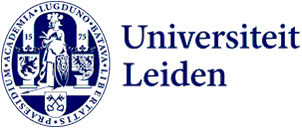
Crammed with meaning: what museum collections tell us about our political system
What does a 19th-century exhibition of traditional utensils from the province of Zeeland tell us about the current rise of populism? A lot, Ad Maas will say in his inaugural lecture. ‘No matter how disciplined people are in “scientific” thinking, knee-jerk reactions to sentimental items can be hard to avoid.’
It will come as no surprise that Ad Maas, Professor by Special Appointment of Museum Aspects of the Natural Sciences and for years a curator at Rijksmuseum Boerhaave, has a deep fascination for the meaning people ascribe to collections and objects. ‘The pieces we cherish say something about society’, he says. ‘Both the type of object and the meaning we give them.’ In his inaugural lecture, Maas will examine changing views of natural history collections in the 19th-century Netherlands and will draw a connection with changes to our political system.
‘If you look closely at collections, you see how society at the time viewed reality.’
Grip on reality
‘A collection is a way for people to get a grip on reality’, Maas explains. ‘If you look closely at collections, you see how society at the time viewed reality.’ A few years back, when holding a fellowship at the University College Roosevelt in Middelburg, Maas delved into the collection history of the Royal Zeeland Society of Sciences. ‘I gradually discovered what seemed to me to be a clear and specific link between the socio-political context and how people in the 19th century approached science and assembled collections.’
From curiosity to rationality
Maas saw that until 1850 mainly curiosities were displayed: objects that evoked wonder and religious awe. After 1850 the focus shifted to local flora and fauna and rational categorisation. ‘That went hand in hand with the emergence of our pursuit of science and the rise of the liberal, constitutional state. From then on we relied on formal rules and laws, rather than on the whims and insight of individuals. Arguments had to be based on demonstrable facts or logical reasoning.’ This rational thinking was only embraced for a short while, however. ‘At the end of the 19th century, politicians already began to appeal to group feeling, tribal aspects and identity’, says Maas. ‘That has gradually returned to politics since then, and also to museums.’
‘It is strange that people have come to believe in something as abstract as facts.’
Cold, abstract facts
How we deal with the truth has been in the spotlight for a few years now, and not just with Maas. ‘Terms such as alternative facts, fake news and post-truth have been in vogue since the rise of Trump in particular. If there is one group that needs to speak out about these current developments, that is historians of science. We look at how people dealt with the truth.’
It is often asked how so many people can ignore or deny facts nowadays. Maas turns that around: ‘Why should people surrender to the cold and abstract authority of facts instead of the natural veracity of figures of authority? It’s actually rather strange that people have come to believe in something as abstract as facts. In that sense, the developments of the second half of the 19th century are the mirror image of the present.’
Feeling and perception
Like politicians, museums today have to strike a balance between reason and wonder − between facts and feelings. ‘Ten years ago, we still had a room at Boerhaave with all sorts of microscopes’, Maas remembers. ‘But that no longer fits with how we see the museum. Now it’s much more about feelings and perception than just expressing scientific order and classification.’ Maas does not draw any conclusions about what the museum’s collection in 2024 says about society. ‘You can discover a lot if you look at how museums represent the world but that is easier to see as a historian than as a contemporary.’
Ad Maas will deliver his inaugural lecture Feiten in vitrines (Facts in Display Cabinets) on 26 January at 16.00. He was made Professor by Special Appointment for Museum Aspects of the Natural Sciences by the Leiden University Centre for the Arts in Society (LUCAS) in September 2022.
Text: Julie de Graaf
Photo: Eelkje Colmjon
